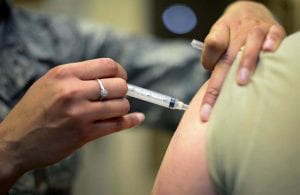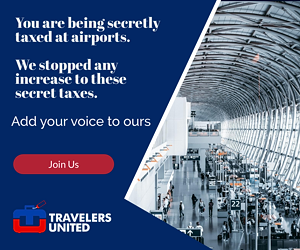COVID still infects travelers as we head into flu season. Travel healthily and avoid diseases like norovirus. Use commonsense to avoid a sick vacation.
 Amid the COVID pandemic, countless vacations were ruined because travelers became infected with COVID. Sick vacations cut short by illness aren’t a new phenomenon; however, the COVID pandemic caused the number of holidays ruined by illness to exceed prior records. What makes the situation worse, to my mind, is that many travelers could have used commonsense. Travel healthily with these easy-to-implement health precautions and preventatives.
Amid the COVID pandemic, countless vacations were ruined because travelers became infected with COVID. Sick vacations cut short by illness aren’t a new phenomenon; however, the COVID pandemic caused the number of holidays ruined by illness to exceed prior records. What makes the situation worse, to my mind, is that many travelers could have used commonsense. Travel healthily with these easy-to-implement health precautions and preventatives.
I agree that sometimes travelers will get sick no matter how careful they are. There is no doubt that every traveler can affect their health both negatively and positively while away from home when they travel healthily.
So, let’s get to it and see what travelers can do to stay healthy while on the go.
Handwashing is one of the most effective ways to prevent illness.
Wash your hands frequently:
Washing your hands is about the easiest action anyone can take to avoid getting sick while traveling. The Centers for Disease Control and Prevention (CDC) has said for years,
“Regular hand washing is one of the best ways to remove germs, avoid getting sick, and prevent the spread of germs to others.”
Scientific analysis of hand washing’s effect shows that it can prevent one in three diarrheal illnesses and one in five respiratory infections such as a cold or the flu. Hand washing can help prevent COVID infections, too.
The single most important preventive that cruisers can perform to avoid the dreaded norovirus is hand washing.
Hand washing must be thorough to work and requires the use of both soap and water. Travelers should always wash their hands:
1. after using the toilet or changing diapers
2. before eating, preparing or handling food
3. before taking medicine or giving it to someone else.
Handwashing requires sufficient time and thoughtful technique.

The CDC says you should wash your hands with soap and water for at least 20 seconds.
To wash your hands well, after you wet your hands with water, apply enough soap to cover both the front and back of your hands, plus in between your fingers. Rub your hands together and scrub the front and back of them and between each finger. Get under your fingernails and don’t forget to thoroughly wash your thumbs. Many people forget their thumbs.
If you can’t wash your hands, use an alcohol-based hand sanitizer, but handwashing is preferable.
Whenever you can’t wash your hands, use an alcohol-based hand sanitizer that contains at least 60 percent alcohol. Cover the front and back of your hands, your fingers and don’t forget your thumbs.
Maintain hydration:
Staying hydrated helps keep the mucus membranes in your nasal passages fully functional. It’s the body’s first line of defense against airborne viruses. They can prevent viruses from entering the body. Staying hydrated, particularly with water, keeps your body at a normal temperature, lubricates your joints and helps your body rid itself of wastes through healthy urination, perspiration, and bowel movements.
Know how much hydration you need — account for climate and weather.
While most people know what hydration at home means, when traveling they must understand the local climate, as well as current weather conditions. Your body needs more water than normal when you’re:
• in hot climates
• in arid climates even when it’s not hot
• when you’re physically active, and
• when you’re sick with diarrhea or vomiting, to speed your recovery.
Sleep, sleep, sleep:
Sleep is an essential function for everyone. It allows our bodies and minds to recharge. It helps our bodies remain healthy with the ability to resist diseases. Vacationers often tend to not get enough sleep because they don’t want to miss a thing when visiting new sights and experiencing new cultures.
To travel healthily, sleep is critical. You need to build adequate time to rest and sleep in your itinerary so that you won’t get sick and potentially miss days and days of vacation in bed in your hotel or cruise ship.
You need to synchronize your body to the new time zone as quickly as possible at destinations located in time zones different than at home. Avoid naps, if possible, as that will delay your body from becoming accustomed to the new time zone. Synchronize your body with your sleep schedule in the new time zone as soon as possible.
Face masks are effective in preventing respiratory illnesses, including the common cold.
Wear a mask:
In some countries around the world, they’ve worn face masks for years during flu season. Wearing a mask will help people avoid contracting more COVID-19. It’s great to help you prevent infections from influenza, other respiratory viruses, and even the common cold, which can be a pain to have while traveling.
Vaccination:
Unfortunately, at this time, when many people hear the word “vaccination,” they only think of COVID-19, not yellow fever, flu, typhoid, measles, pneumonia, etc. Check with your primary physician. Tell your physician where you’re going and get the recommended vaccinations for your destination and everyday life at home.
Sanitization:
I recommend that you always travel with alcohol-based sanitizer wipes to sanitize frequently touched surfaces on planes, other transportation conveyances, and your hotel room or other accommodations. On airplanes, for example, I sanitize the tray table and seat arms, etc. I sanitize light switches, TV remotes, door knobs at hotels.
COVID-19 needs vaccination and face masks in closed areas for vacationers to travel healthily.
COVID-19:
Among diseases at this time, COVID continues to pose a major problem for travelers. While most people survive COVID, particularly if vaccinated for it, if you become infected with the virus, you’ll immediately lose five days from your journey while you stay in isolation so you don’t infect others. If you’re not yet vaccinated for COVID, get vaccinated. If you’re not yet boosted, get the additional vaccinations. I wear a mask when in tight quarters, such as in elevators or hallways. I also wear a mask while flying. That’s even more important if someone on the plane near you is red-faced, meaning they may very well have a fever and/or are sneezing and coughing. That’s when it’s essential to protect yourself with a high-quality (N95, KN95) face mask.

READ ALSO:
Why we need a common flight credit rule for airlines from DOT — now
73 percent of sick plane passengers would fly, flight changes too costly
After many years working in corporate America as a chemical engineer, executive and eventually CFO of a multinational manufacturer, Ned founded a tech consulting company and later restarted NSL Photography, his photography business. Before entering the corporate world, Ned worked as a Public Health Engineer for the Philadelphia Department of Public Health. As a well known corporate, travel and wildlife photographer, Ned travels the world writing about travel and photography, as well as running photography workshops, seminars and photowalks. Visit Ned’s Photography Blog and Galleries.
